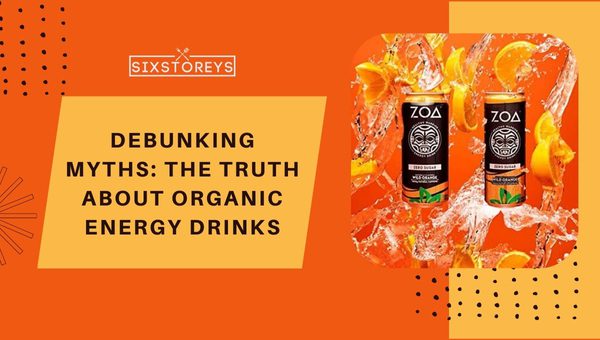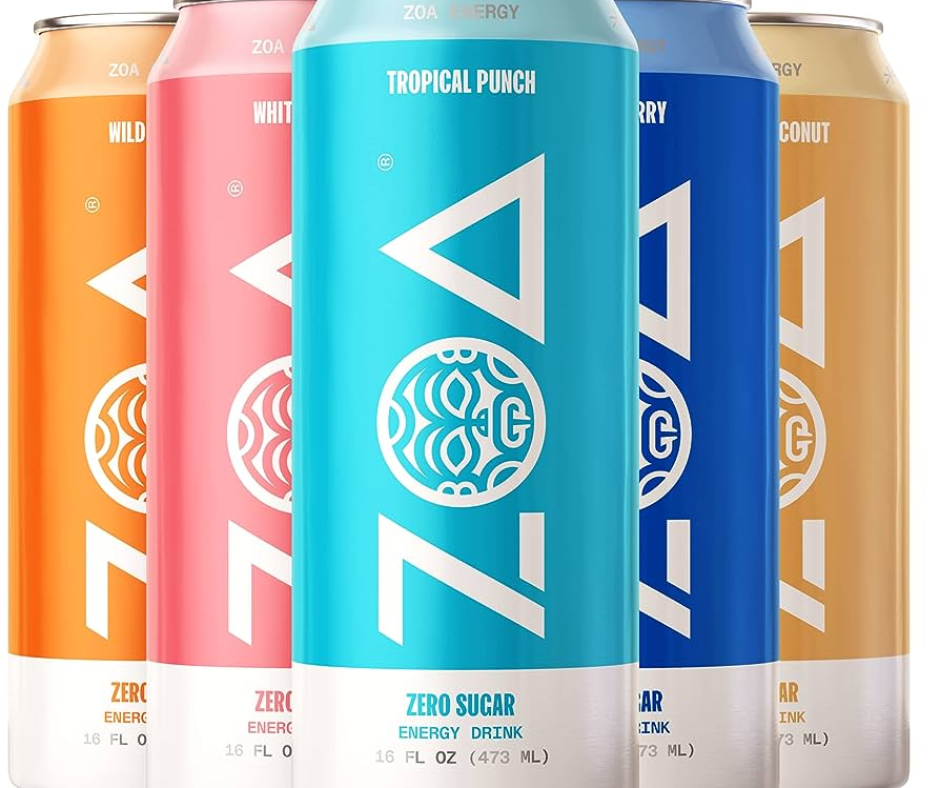Is Zoa Healthy? Debunking Myths About Energy Drinks
Zoa Energy Drink offers a blend of vitamins, electrolytes, and natural caffeine. Understand its ingredients to determine if it aligns with your health goals.
Zoa Energy Drink has rapidly gained popularity among those seeking an energy boost with a focus on wellness. Crafted with an emphasis on natural ingredients, Zoa provides a unique combination of nutrients designed to support energy, focus, and hydration. Marketed as a healthier alternative to traditional energy drinks, it boasts a formula that includes B vitamins, electrolytes, amino acids, and antioxidants.
With Dwayne “The Rock” Johnson as a co-founder, the brand emphasizes clean and sustainable energy. While Zoa is positioned as a better-for-you option in the saturated energy drink market, consumers should always assess their dietary needs and consult with healthcare professionals to ensure it fits within their lifestyle and wellness regimen.
Zoa Energy Drinks Under The Microscope
Zoa Energy Drinks boast a unique blend of ingredients. Among them are vitamin C, B-vitamins, and amino acids. Zoa includes natural caffeine from green tea and green coffee. Electrolytes support hydration, and Camu Camu berries enhance vitamin C content.
Superfoods like turmeric and acai also make the list. These additives provide potential antioxidant benefits. With no artificial colors, Zoa aims for a healthier profile.
| Zoa Energy | Other Drinks |
|---|---|
| Natural caffeine sources | Often synthetic caffeine |
| Added electrolytes for hydration | May lack hydration support |
| Includes superfoods | Fewer antioxidant options |
| No artificial colors | Common artificial additives |
Unpacking The Health Claims
Zoa is marketed as a nutrient-rich beverage aimed to be a health booster. Claims include improved focus, enhanced energy, and fortified immunity. Supporters praise Zoa for its vitamins, electrolytes, and amino acids. Savvy consumers question its sugar content and caffeine levels. Critics challenge the benefits, citing potential risks with excessive consumption.
User experience varIies with some reporting positive effects on their day-to-day wellness. Others have noted side effects such as jitteriness and upset stomach. Such disparities emphasize the need for individual assessment.
Research on natural ingredients in Zoa, like camu camu and acerola cherry, indicates possible health gains. Yet, it’s crucial to consider overall lifestyle and health goals. Users should consult health professionals before making Zoa a staple.
The Caffeine Content Debate
Zoa Energy Drink contains caffeine. Caffeine gives energy but too much can be harmful. People often ask, “How much caffeine is safe?” Different health groups have different answers.
| Drink | Caffeine Content (mg) |
|---|---|
| Coffee | 95 |
| Tea | 55 |
| Zoa | 160 |
| Energy Drinks | Varies |
For adults, 400 mg of caffeine a day is often seen as safe. For kids, it is much less. Remember, everyone’s body is different. Some people can handle more caffeine. Others cannot handle a lot. Always check with a doctor to know what is best for you.

Sugar And Sweeteners: The Bitter Truth
Energy drinks often have sugar hidden inside them. Labels might list ‘natural flavors’ or ‘syrups’. These are sugars in disguise. Many people drink them for a quick energy boost. But, too much sugar can lead to health issues.
Artificial sweeteners offer a sweet taste without the calories. They can help in weight control. Yet, some studies suggest they might make you crave more sweet food. Others think they are safer than sugar. It is important to understand both the good and bad sides of artificial sweeteners.
Myths Vs. Facts
Many people believe that energy drinks are bad for health. This is not always true. Zoa is often misunderstood among these drinks. People think that all energy drinks cause harm. Scientific studies suggest otherwise. Zoa should not be mixed up with unhealthy options.
Research shows Zoa contains natural caffeine and vitamins. This differs from synthetic additives found in other drinks. Natural ingredients can be beneficial. They help in boosting energy safely and effectively. It is crucial to read labels and understand what you consume.
Truth lies in balanced consumption and knowledge of ingredients. This is where Zoa stands out. It promotes healthy energy levels without misleading consumers. Not all energy drinks are equal. Zoa is designed with health in mind.

Making An Informed Choice
To determine whether Zoa is healthy, one should assess their individual consumption patterns. A deep look at both quantity and frequency of intake is essential. It’s important not to consume Zoa in excess, keeping a balance with other nutritional elements in one’s diet.
Opting for water or natural juices as alternatives can lead to a more balanced lifestyle. It’s recommended to integrate Zoa moderately, pairing it with regular exercise and healthy eating habits. Remember to check with a health professional if unsure about personal dietary needs.

Frequently Asked Questions Of Is Zoa Healthy
What Are Zoa’s Main Health Benefits?
Zoa is a beverage known for its energy-boosting properties. It typically contains vitamins, electrolytes, and other nutrients that can support hydration and physical endurance. Its caffeine content also helps to enhance focus and alertness.
Does Zoa Contain Natural Ingredients?
Yes, Zoa often features natural ingredients such as green tea extract, electrolytes from natural sources, and vitamins like B and C. These contribute to health without artificial additives, aligning with a preference for clean nutrition.
How Much Caffeine Is In Zoa?
The caffeine content in Zoa can vary by product, but it usually has around 160mg of natural caffeine per can. That’s similar to one-and-a-half to two cups of coffee, providing a significant energy boost.
Is Zoa Suitable For Daily Consumption?
Zoa is designed for daily use, especially for active individuals who need sustained energy. However, moderation is key due to its caffeine content, and it’s important to consider one’s own caffeine tolerance and dietary needs.
Conclusion
Wrapping up, Zoa energy drinks offer a powerful boost with natural caffeine. Their focus on wellness through vitamins and antioxidants stands out. Yet, moderation is key, as with any caffeine product. Consult with a nutritionist to see if Zoa aligns with your health goals.
Choose wisely for optimal energy and well-being.
